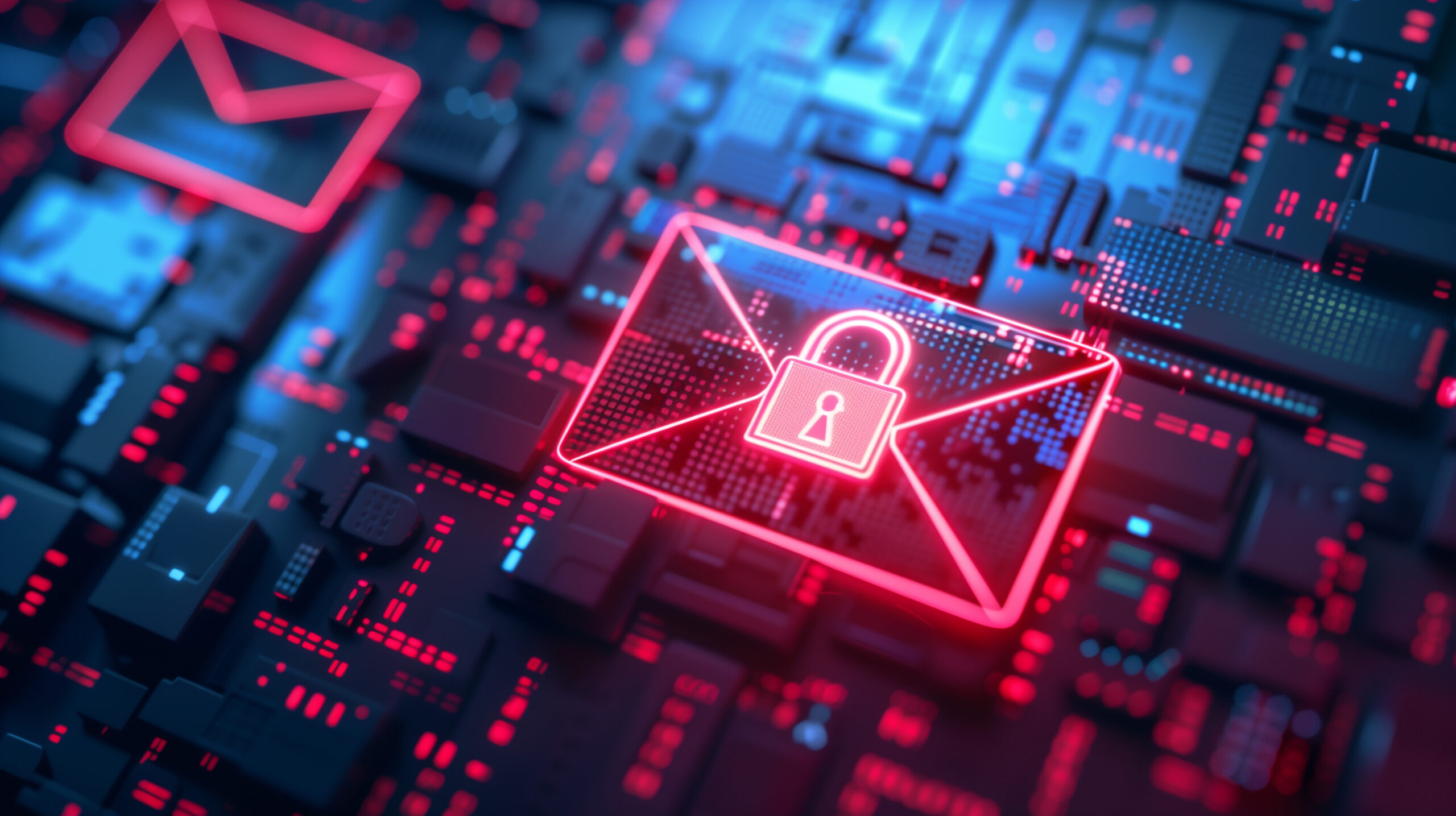In today’s digital landscape, email remains a primary tool for communication, making it a prime target for cybercriminals. Phishing, spoofing, and email-based fraud have become increasingly sophisticated, leaving businesses vulnerable to attacks. One of the most effective tools to combat these threats is DMARC (Domain-based Message Authentication, Reporting & Conformance). But what exactly is DMARC, and why should your business care?
Covered in this article:
What is DMARC?
DMARC is an email authentication protocol designed to protect your organization’s domain from being used in cyberattacks such as email spoofing. It works by verifying the legitimacy of the sender’s address, ensuring that only authorized senders can send emails from your domain. DMARC builds on two existing protocols, SPF (Sender Policy Framework) and DKIM (DomainKeys Identified Mail), adding a layer of policy enforcement and reporting.
In simple terms, DMARC ensures that when someone receives an email from your domain, it’s actually from you—and not a malicious actor pretending to be you.
How Does DMARC Work?
DMARC works in three main stages:
- Authentication: It checks if the email was sent from an IP address authorized by the domain owner using SPF or if the email’s contents are cryptographically signed by DKIM.
- Alignment: DMARC ensures that the domain in the “From” address matches the domain in the SPF or DKIM records, aligning the email with the legitimate sender.
- Reporting: DMARC generates reports, giving you insights into who is trying to misuse your domain. These reports can be used to identify potential threats and improve email security policies.
Why Every Business Needs DMARC
1. Prevent Email Spoofing and Phishing
Email spoofing is a common tactic where cybercriminals send fraudulent emails that appear to come from a legitimate business. These emails are often used to trick recipients into divulging sensitive information or installing malware. DMARC helps prevent these attacks by ensuring that only authorized senders can use your domain, protecting your customers and employees from phishing attempts.
2. Protect Your Brand Reputation
A successful phishing attack can damage your brand’s reputation. Customers trust your emails to be authentic, and any breach of that trust can have long-term consequences. By implementing DMARC, you’re taking a proactive step to safeguard your brand’s reputation, showing your commitment to security.
3. Improve Email Deliverability
Emails that fail DMARC authentication are more likely to end up in spam folders or be rejected outright by receiving mail servers. Implementing DMARC improves the chances of your legitimate emails reaching your recipients’ inboxes, ensuring smooth communication and a better overall email experience.
4. Gain Visibility Into Threats
DMARC reports provide detailed insights into unauthorized attempts to send emails from your domain. This visibility allows your IT team to stay ahead of potential threats, mitigating risks before they can cause harm. The data can also help you fine-tune your email security strategy.
5. Compliance with Security Standards
Many industries and regions now require businesses to implement stricter cybersecurity measures, including email authentication protocols like DMARC. By adopting DMARC, your business can stay compliant with security standards and regulations, helping you avoid potential fines and penalties.
Getting Started with DMARC
Implementing DMARC involves setting up SPF and DKIM records for your domain, followed by publishing a DMARC policy in your DNS. The process can be complex, especially for businesses with multiple email domains, but it’s essential for ensuring the safety and authenticity of your email communications. Partnering with a managed IT provider like Turrito can simplify the process, ensuring proper configuration and ongoing management of your DMARC setup.
Conclusion
Email security should be a top priority for every business, no matter the size. DMARC not only protects your domain from being hijacked by cybercriminals but also strengthens your overall email security posture. By implementing DMARC, you’re not just securing your own communications—you’re protecting your brand, your customers, and your reputation.
Is your business DMARC-compliant? Contact Turrito today to get started on securing your email infrastructure and safeguarding your digital presence.


